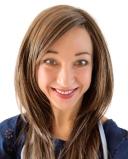
Eating Disorders
Why Doctors With Eating Disorders Don't Ask for Help
Exploring why physicians conceal and neglect their own ill health.
Posted October 3, 2020 Reviewed by Matt Huston
As doctors, our role involves healing others. Admitting we have a problem we are unable to resolve ourselves is at odds with our professional identity—it goes against our training, and often our nature. When I was ill with anorexia, accepting the patient role felt completely incongruous to my sense of self. I was a doctor, not a patient. As such, I was supposed to neither get sick nor rely on others to get better. Asking for and accepting help was instrumental to my recovery, but my reluctance to do so was typical of physicians with health problems.
Contributing factors to physicians denying their own illness include high personal standards, a culture of always coping, and concerns about letting colleagues and patients down. Doctors are uncertain about who best to ask for help and worry about confidentiality and the impact on career progression (1, 2). Stigma is particularly problematic in eating disorders, which are reported to feel more shameful than conditions like anxiety and depression.
There is an assumption within medicine that we should be "strong enough" to deal with our own problems. Mental health is still sometimes perceived as within our control. Doctors have a tendency to try to self-treat (3, 4). My initial solution to my last relapse was to purchase a textbook for psychologists and attempt to apply CBT-E to myself. Unfortunately, treatment for anorexia is not as simple as writing a prescription for amoxicillin, and I was disappointed to find I was not the most compliant patient.
Medical culture contributes to a reluctance to disclose mental ill health. The narrative remains that good doctors do not make mistakes and illness is synonymous with weakness (5). Taking time off work is letting people down, and showing vulnerability evokes fear of loss of respect. The ethos of "just get on with it, don't moan," "it's tough for everyone, you just have to cope" contributes to apprehensions about tension within professional relationships. There may also be anxiety about disciplinary action or General Medical Council (GMC) involvement that could jeopardize one's entire career.
People with eating disorders often find it difficult to accept they are "sick enough" for treatment. This may be because their BMI is not critically low, because they can function to an acceptable degree, or because they can still work. This is compounded in doctors, whose medical knowledge allows for the justification of symptoms as "insignificant." Doctors are indisposed to seek health care for minor illness, and coupling this with a tendency to rationalise symptoms as trivial creates a serious barrier to accessing treatment (6, 7).
You don't need to be a skeleton at breaking point to ask for help. Health is not simply the absence of disease, and life is about more than just surviving. Doctors are stoical and high-functioning and can hide considerable physical and cognitive deficits behind endurance and intellectual capacity. So yes, maybe you’re not moribund—but if you have an active eating disorder I'd hazard a guess you're only operating at a fraction of your optimal capacity.
You have no idea what you're capable of and how amazing you could be if you were well. You can't imagine how it feels to think with a nourished brain, or to inhabit a properly fuelled and rested body. I had no idea. Looking back, I am shocked to realize how impaired I was and how awful I felt compared to how I feel now. I am at least 10 times the doctor—and 10 times the person—now that I am well. I have the energy and enthusiasm to feel passionate about my job. I can be the type of doctor whom I would want to take care of my family and the type of person I want to be.
A further barrier to doctors seeking treatment is their perception that it is unlikely to be effective. Eating disorders are difficult to manage and physicians are aware of limitations of medical care. Treatment can be difficult to access with strict referral criteria and long waiting lists, and knowing they may be turned away or face a long wait for treatment can put doctors off asking for it. Evidence-based medicine highlights a lack of evidence for certain eating disorder treatments (8), further encouraging scepticism.
Then there are practicalities—outpatient appointments take place during the working day, which is difficult in the context of a busy medical rota. Struggling with an eating disorder may seem more acceptable than taking time off work for appointments, letting colleagues down, and falling behind with postgraduate training or examinations.
While these issues are real, none are insurmountable. As doctors, we earn good salaries and could access private treatment if we choose to do so. While this is not ideal, it is important to take responsibility for our own health and utilize all available resources to help us recover. Sitting back and making excuses for why we can't isn't good enough. If we make a proactive decision to devote time and energy to getting better we certainly can—anyone who is dedicated and determined enough to pursue a demanding career in medicine is capable of finding treatment for their own health problems. The privilege of caring for others confers a moral obligation to look after ourselves. And even if you doubt you could fully recover, you could definitely be a lot better than you are now.
I must add a caveat that it is of paramount importance to access care from individuals qualified in eating disorder treatment, affiliated with a reputable professional body and undergoing adequate supervision. Eating disorders are highly complex conditions with a high mortality rate, and significant damage could be incurred from treatment by anyone who does not fulfill those basic requirements.
I did not ask for help to overcome anorexia for over 15 years of medical training. I didn't think I was sick enough, I was ashamed I couldn’t “sort myself out,” I was concerned about letting people down, and I was worried about my professional reputation. I had, however, reached a point where I realised what I was doing wasn't working. I needed treatment, and I needed to modify certain factors at work that were perpetuating my illness to take the necessary steps to recover. And I couldn't do that alone.
When I confided in one of my Consultants, I felt more exposed and vulnerable than ever before. I was terrified of potential consequences and assumed he would see me as a failing doctor. After I finished apologising for saddling him with my problems, he simply looked at me and said: "You have an illness. I am a doctor, and this is a hospital. We're going to look after you—just tell me what you need." His words meant more to me than he will ever know.
For that is exactly it. If we show ourselves and our colleagues a fraction of the kindness and compassion we grant our patients, we could create a culture within medicine in which doctors take care of themselves and each another. Asking for help gave me the space I needed to recover. I wasn’t thrown off my training program or told I was unfit to practice. Addressing modifiable factors in my working schedule and environment allowed me to put changes in place to make recovery sustainable in the context of a medical career.
Acknowledging our vulnerability engenders an empathy that makes us better doctors. Facing our struggles is strength, not weakness, and accepting that we are worthy of the care traditionally reserved for patients will allow us to heal ourselves.
References
1. Joseph DI, Onek J. Confidentiality in psychiatry. In: Bloch S, Chodoff P, Green SA, editors. Psychiatric ethics. Oxford: Oxford University Press; 1999. pp. 105–140.
2. Davidson S, Schattner P. Doctors' health-seeking behaviour: a questionnaire survey. Med J Aust. 2003;179(6):302–305.
3. Rosvold EO, Bjertness E. Illness behaviour among Norwegian physicians. Scand J Public Health. 2002;30(2):125–132.
4. Richards C. The health of doctors. Physician heal thyself — but how? London: King's Fund Publishing Office; 1989.
5. Brooks SK, Gerada C, Chalder T et al. . Review of literature on the mental health of doctors: are specialist services needed? J Ment Health 2011;20:146–56.
6. Fromme E, Hebert R, Carrese J. Self-doctoring: a qualitative study of physicians with cancer. J Fam Pract. 2004;53(4):299–306.
7. McKevitt C, Morgan M. Anomalous patients: the experiences of doctors with an illness. Sociol Health Illn. 1997;19(5):644–667.
8. Doust J, Del Mar C. Why do doctors use treatments that do not work? BMJ. 2004;328(7438):474–475.



